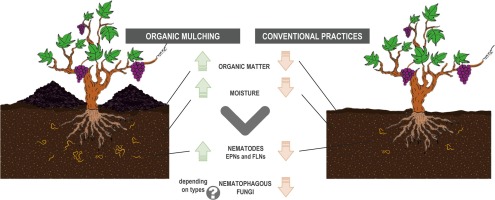Mulching is an integral part of sustainable gardening and landscaping practices. It involves applying a layer of material on the soil surface to conserve moisture, improve soil conditions, and enhance aesthetic appeal. However, like any garden practice, it comes with its challenges, particularly regarding pest infestations such as mushrooms and rats. In this comprehensive guide, we’ll explore different types of mulch, the benefits they offer, and how to protect your garden from unwanted pests.
Types of Mulch
Organic Mulch
Organic mulches are made from natural materials such as wood chips, straw, leaves, and grass clippings. These materials break down over time, adding valuable nutrients to the soil. Common examples include:
- Bark Mulch: Often made from cedar or pine, this mulch is long-lasting and helps in suppressing weeds.
- Straw Mulch: Excellent for vegetable gardens, straw provides a light and airy cover that decomposes relatively quickly.
- Leaf Mulch: A cost-effective option if you have trees in your yard, leaf mulch offers excellent insulation for plants.
Inorganic Mulch
Inorganic mulches do not decompose and, therefore, do not add nutrients to the soil. However, they have their own set of benefits:
- Stone and Gravel: Ideal for decorative purposes, these mulches help prevent soil erosion and are great for pathways or driveways.
- Plastic Mulch: Primarily used in agriculture to warm the soil, conserve moisture, and reduce weed growth.
- Landscape Fabric: Used under decorative mulch types to prevent weed growth while allowing water and air to penetrate the soil.
Biodegradable Mulch
Biodegradable mulches bridge the gap between organic and inorganic by providing the benefits of both:
- Biodegradable Films: Made from starches or other plant materials, these films break down over time, offering a temporary solution to weed control and moisture conservation.
Benefits of Mulch
Mulch offers a myriad of benefits that significantly impact the health and appearance of your garden:
1. Moisture Conservation
By reducing evaporation, mulch conserves soil moisture, ensuring that plants receive adequate water even during dry spells. This is crucial for plant health and aligns with water conservation efforts.
2. Temperature Regulation
Mulch acts as an insulating layer, protecting plant roots from extreme temperatures. This regulation is essential for preventing plant stress and ensuring consistent growth.
3. Weed Suppression
By blocking sunlight, mulch effectively suppresses weed growth, reducing the need for chemical interventions and manual weeding.
4. Soil Fertility and Structure
Organic mulches break down over time, enhancing soil structure and fertility. They promote microbial activity, which is vital for nutrient availability and healthy plant growth.
5. Erosion Control
Mulch reduces the impact of heavy rains on bare soil, preventing erosion. This is particularly important on slopes or in areas with minimal ground cover.
6. Aesthetic Enhancement
A well-mulched garden presents a uniform, neat appearance that enhances the overall aesthetic of landscapes and gardens.
7. Reduced Maintenance
Mulch lowers maintenance requirements, such as watering and weeding, saving time and reducing costs in the long run.
Preventing Mushroom and Rat Infestations
While mulch has numerous benefits, improper use can lead to pest problems, particularly with mushrooms and rats. Here are some strategies to prevent these issues:
Regular Inspection and Maintenance
Conduct regular checks to ensure mulch remains dry and well-aerated. Both mushrooms and rats thrive in damp, enclosed spaces, so it’s crucial to maintain optimal conditions.
Use of Repellents and Barriers
To deter rats, consider using wire mesh barriers or planting herbs such as mint and lavender, which rats find unappealing. Repellents can also be effective in keeping them at bay.
Avoid Over-Mulching
Applying too much mulch can retain excessive moisture, creating an ideal environment for pests. Aim for a mulch layer that’s about 2-3 inches thick to avoid over-mulching.
Choosing the Right Mulch
Select mulch types that are less attractive to fungi and rodents. Cedar or cypress mulches are known to repel rats, while inorganic mulches can prevent mushroom growth.
Proper Waste Management
Ensure that your garden is free from food sources for rats. This includes proper disposal of organic waste and cleaning up any fallen fruits or vegetables.
Prompt Mushroom Removal
If mushrooms appear, remove them promptly to prevent spore spread. While most garden mushrooms are harmless, they can indicate overly moist conditions that need addressing.
Conclusion
Mulching is a vital gardening practice that offers numerous benefits, from conserving moisture to enhancing soil fertility. However, like any practice, it requires careful management to prevent pest issues. By selecting the right type of mulch and maintaining optimal conditions, you can enjoy all the benefits mulch offers while keeping your garden free from mushrooms and rats.
For those who want to elevate their gardening skills, understanding the nuances of mulching is just the beginning. Remember, a well-tended garden not only looks beautiful but also functions as a thriving ecosystem that supports plant health and biodiversity.




